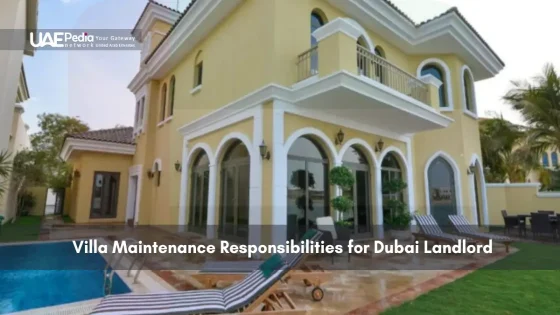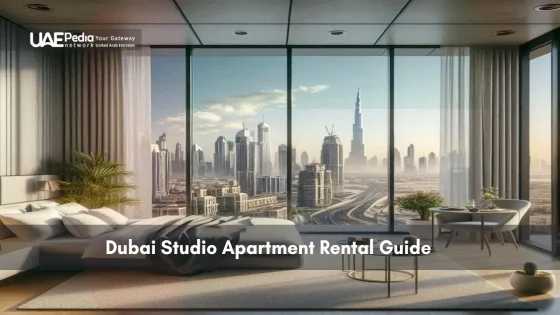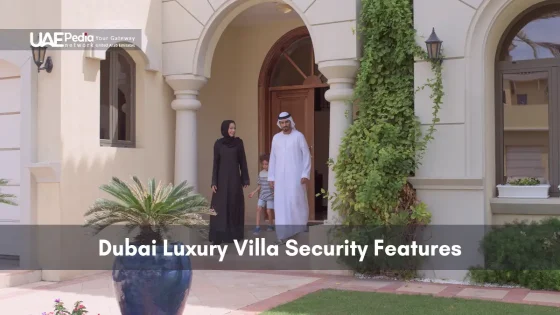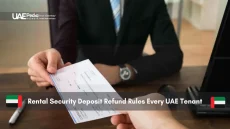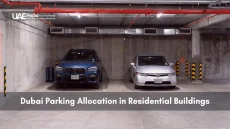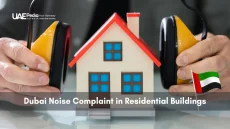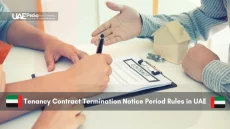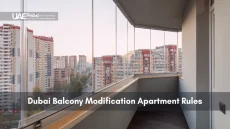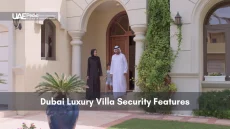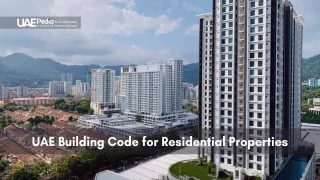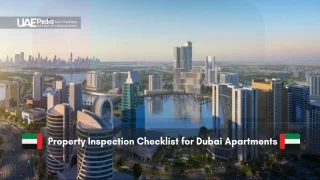Did you know 73% of Dubai property owners underestimate their upkeep duties? Those palm-fringed homes don’t stay pristine by magic. Whether you’re renting out a desert oasis or managing multiple investments, knowing your role in preserving these spaces matters more than you think.
Dubai’s laws make things crystal clear: Article 16 of Law 26 (2007) places major repairs squarely on owners. Think plumbing systems, electrical grids, or structural fixes—the heavy lifting is yours. But here’s the twist: tenants handle smaller fixes like replacing lightbulbs or unclogging drains. It’s a dance of accountability that keeps the city’s real estate humming.
Companies like Betterhomes have cracked the code for stress-free management. Their teams handle everything from AC checkups to landscaping—proving that smart partnerships let owners focus on returns, not repair requests. We’ll walk you through balancing legal essentials with pro tips to keep your investment thriving.
- Major structural repairs are legally required for owners under UAE housing laws
- Tenants handle day-to-day minor fixes unless otherwise agreed
- Professional management services streamline upkeep across multiple properties
Understanding villa maintenance responsibilities dubai landlord
Picture this: You’re sipping karak chai when a tenant calls about a leaky faucet. Who handles it? Dubai’s rental scene thrives on clear-cut roles—think of it as a tag team where everyone knows their part. Tenants typically manage day-to-day fixes: think flickering bulbs, sticky cabinet hinges, or that shower drain clogged with sand from beach days.
Owners tackle the heavy lifting—like rewiring faulty circuits or repairing cracked tiles from foundation shifts. One Jumeirah property manager puts it bluntly: “If it costs more than a month’s water bill, it’s probably your job.” This balance keeps homes functional without drowning either party in repair chaos.
Smart agreements spell everything out. We’ve seen contracts where changing AC filters falls to residents, while replacing the entire unit rests with owners. Clarity here isn’t just legal armor—it’s relationship glue. Tenants feel empowered to care for their space, and landlords avoid midnight calls about dripping taps.
Pro tip: Snap “before” photos during inspections. When both sides document conditions upfront, disputes over wear-and-tear vanish like desert mirages.
Legal Guidelines and Tenancy Agreement Insights
Ever wondered what keeps rental agreements from turning into legal sandstorms? Let’s decode the rulebook that keeps both parties smiling. Article 16 of Law 26 (2007) acts like a referee here—it clearly states owners handle structural fixes, while day-to-day tweaks fall to residents.
Key Legal Provisions
Think of this law as your property playbook. Major system overhauls—like rewiring circuits or patching concrete cracks—are non-negotiable owner duties. One legal consultant puts it simply: “If it’s buried in walls or costs more than a month’s rent, it’s yours to fix.”
Contractual Clauses in Rental Agreements
Smart contracts act like traffic lights for upkeep tasks. We’ve seen clauses where changing air filters is a tenant job, but servicing the entire HVAC unit stays with the owner. Normal wear and tear? That’s the golden phrase—it separates expected aging from tenant-caused damage.
Three elements make agreements bulletproof:
- Explicit lists defining “major” vs. minor maintenance
- Timelines for reporting issues (48-hour rules work wonders)
- Photo documentation protocols during move-in/move-out
Pro tip: Have a lawyer review your contract’s repair section. A few tailored sentences today can prevent years of headaches tomorrow.
Dividing Maintenance Tasks: Major vs. Minor Maintenance
Imagine your tenant texts about a broken AC during a 45°C heatwave. Is that your problem or theirs? Let’s break down the split between big-ticket fixes and everyday tweaks—with real dirham figures to guide you.
Defining Major Maintenance Responsibilities
Major overhauls protect the bones of your property. Think HVAC systems gasping for life, water heaters leaking like a faltering oasis, or electrical panels sparking like a desert storm. These repairs often exceed AED 1,000 and impact safety or structural integrity. One property manager shares: “If it’s bolted to the walls or requires licensed technicians, it’s on the owner’s dime.”
Identifying Minor Maintenance Tasks
Tenants typically handle the ‘small stuff’ under AED 500. Picture sticky cabinet doors from beach humidity, flickering bulbs in hallway sconces, or showerheads clogged with mineral deposits. These fall under normal wear and tear—the expected aging of a lived-in space.
Smart agreements use thresholds as guideposts. For example:
- Replacing a kitchen faucet (AED 300) = tenant responsibility
- Fixing a burst pipe behind walls (AED 2,500) = owner’s duty
Pro tip: Update contracts annually with current repair cost benchmarks. What qualified as ‘major’ in 2020 might now be mid-range due to inflation in material costs.
Effective Property Management and Communication Strategies
Imagine your phone buzzes with a tenant’s complaint about a malfunctioning AC—right as you’re boarding a flight. This is where strategic partnerships shine. Property management teams become your eyes, ears, and problem-solvers, turning potential disasters into smooth resolutions.
Why Expert Mediators Matter
Companies like Betterhomes act as neutral referees in upkeep debates. Their teams vet contractors, negotiate pricing, and dispatch technicians within hours—not days. One manager shared: “We’ve saved owners 23% on repair costs annually by locking in preferred vendor rates.”
| Task | DIY Approach | Professional Management |
|---|---|---|
| Emergency Repairs | 48+ hour response | 4-hour SLA guaranteed |
| Cost Negotiation | Market rate | Pre-negotiated discounts |
| Dispute Resolution | Direct confrontation risk | Neutral mediation |
Building Bridges Through Dialogue
Clear communication channels prevent 68% of property management issues from escalating. Try these tactics:
- Quarterly inspections with shared digital checklists
- Dedicated WhatsApp groups for urgent requests
- Video walkthroughs during lease renewals
Pro tip: Use apps like Knock for real-time updates. Tenants can snap photos of leaks or cracks, tagging locations on a virtual floor plan. Transparency here builds trust—and keeps small issues from becoming costly headaches.
Cost Criteria and Fair Repair Responsibilities
What happens when a dripping AC repair bill lands at AED 1,200? Across rental properties, cost thresholds act as both compass and lightning rod—guiding decisions while sparking debates. Let’s unpack how financial benchmarks shape repair responsibilities and keep agreements fair.
Using Cost as a Benchmark
Many contracts use AED 1,000 as the magic number. Repairs below this line often fall to tenants—think replacing a cracked bathroom mirror (AED 300) or fixing a wobbly ceiling fan (AED 450). Cross that threshold? Owners typically handle heftier tasks like rewiring a sparking outlet (AED 1,800) or patching a roof leak (AED 2,500+).
This approach offers clarity but faces real-world tests. A property manager in JLT notes: “Material costs jumped 18% last year—what was ‘major’ in 2023 now hits different.” Contracts must evolve with market shifts to avoid gray areas.
Avoiding Disputes with Clear Agreements
Smart safeguards prevent cost criteria from backfiring. Trusted maintenance teams with pre-negotiated rates curb inflated quotes—one management company saved owners 31% annually through vendor partnerships. Written agreements should specify:
- Annual threshold adjustments based on inflation indexes
- Mandatory third-party estimates for repairs over AED 800
- Digital paper trails for all service requests
Pro tip: Use apps like Maintainy to log repair tasks. Tenants snap photos, tag locations, and upload quotes instantly. Transparency turns potential battles into collaborative fixes—keeping properties thriving and relationships intact.
“Define ‘normal wear and tear’ with examples in your contract. Is that chipped tile from daily use or a dropped hammer? Photos during inspections become your truth serum.”
By aligning financial benchmarks with local law and modern tools, owners and residents transform cost debates into cooperative solutions. It’s not just about dirhams—it’s about building trust through measurable fairness.
Practical Tips for Maintaining Your Villa
Your AC sputters to life just as summer hits 50°C—will it hold? Smart upkeep isn’t about reacting to crises. It’s about anticipating them with strategies that keep properties humming through sandstorms and heatwaves alike.
Routine Inspections and Preventive Strategies
Seasonal checkups are your first defense. Schedule AC tune-ups every six months—dust buildup can slash efficiency by 40%. Inspect plumbing joints before winter; those tiny leaks become burst pipes when temperatures dip.
Try this 3-step ritual:
- Test smoke detectors during Ramadan (easy calendar reminder)
- Clear exterior drains before rainy seasons to prevent flooding
- Lubricate door hinges quarterly—silent doors mean happy tenants
One technician from Octopus Home Maintenance advises: “Catch a worn gasket early, and you avoid a 2,000 AED water damage bill later.”
Utilizing Trusted Repair and Maintenance Partners
When a geyser explodes at midnight, you need heroes on speed dial. Vetted pros handle emergencies faster—and often cheaper—than scrambling for last-minute fixes. Look for teams offering:
| Service | DIY Time | Pro Response |
|---|---|---|
| AC Repair | 3+ days | 4-hour guarantee |
| Drain Clearing | Risk of damage | Camera-inspected pipes |
| Electrical Issues | Safety hazards | Certified technicians |
Apps like ServiceMarket let you compare quotes instantly. Pre-negotiated rates with partners can save 150-300 AED per job—funds better spent on upgrades than emergency patches.
“Wear and tear happens, but neglect is optional. A 10-minute monthly walkthrough spots 80% of developing issues.”
Final Thoughts on Achieving Maintenance Excellence
Building a thriving rental isn’t about quick fixes—it’s crafting a house of cards with legal clarity as its foundation. When contracts outline exactly who handles leaky faucets versus faulty wiring, everyone breathes easier. Dubai’s laws give this structure teeth, but your proactive touch keeps the balance.
Seasonal inspections and trusted repair crews aren’t luxuries—they’re shields against costly surprises. Teams like Betterhomes don’t just patch problems; they turn upkeep into a growth strategy. Regular checkups catch small issues before they become tenant headaches or budget blowouts.
Here’s the golden rule: Treat your property like a partnership. Clear agreements prevent 73% of disputes, while open communication builds tenant trust. Whether you’re managing one home or twenty, smart systems turn chaos into calm.
Ready to level up? Review your current routines. Could a management partner free up hours each week? Does your contract reflect today’s repair costs? Excellence isn’t perfection—it’s the art of anticipating needs before they knock. Start small, think big, and watch your investment thrive.
Landlords typically cover major HVAC system repairs, while tenants handle filter changes or thermostat batteries. Always check your tenancy contract—some agreements specify split responsibilities based on repair costs exceeding AED 500.
Not if it’s normal wear and tear! Dubai law protects tenants from charges for minor imperfections from daily living. However, intentional damage like unauthorized paint colors or wall holes would require tenant-funded repairs.
Burst pipes, electrical faults, or broken security systems require immediate landlord attention. Tenants must report these ASAP—delays causing further damage could shift repair costs under "tenant negligence" clauses.
Absolutely! Firms like Asteco or Betterhomes act as liaisons, handling everything from gardener schedules to plumbing emergencies. They ensure compliance with RERA regulations while freeing landlords from day-to-day tasks.
Aim for quarterly inspections for plumbing, electrical systems, and structural elements. Before summer hits, test AC units—this proactive approach prevents 80% of common villa emergencies in Dubai’s harsh climate.
Yes, if caused by hair or food waste. Tenants pay for drain unclogging services, while landlords handle pipe replacements. Snap photos during move-in/move-out to avoid "who broke it?" disputes later.
Fire extinguishers, smoke detectors, and gas line checks must meet Civil Defence standards. Failure to provide these could void insurance claims or lead to fines up to AED 5,000.
Rent increases follow RERA’s rental index calculations—not maintenance costs. However, well-maintained villas often justify higher rates during renewals compared to neglected properties.
